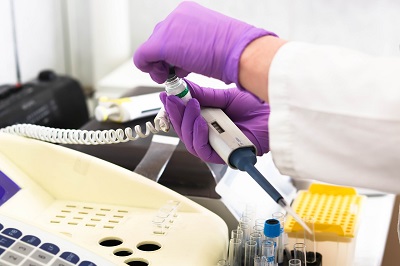What preparatory work needs to be understood before applying for EU CE certification for Class D medical devices?
Release time:2024-08-19 14:17:33
The author:
source:
Familiarize Yourself with MDR 2017/745: Understand the EU Medical Device Regulation (MDR), which governs the requirements for medical devices in the EU. Focus on specific provisions related to Class D devices, which are considered high-risk.
Before applying for EU CE certification for Class D medical devices, it's crucial to understand and prepare for several key aspects of the process. Here's a comprehensive list of preparatory work to consider:
1. Regulatory Knowledge
- Familiarize Yourself with MDR 2017/745: Understand the EU Medical Device Regulation (MDR), which governs the requirements for medical devices in the EU. Focus on specific provisions related to Class D devices, which are considered high-risk.
- Understand Device Classification: Ensure your device is correctly classified as Class D based on its intended use and risk level.
2. Technical Documentation
- Prepare Design Dossier: Gather and organize all required documents for the Design Dossier, including device descriptions, risk management documentation, clinical evaluations, performance testing, and labeling.
- Ensure Comprehensive Documentation: Ensure that all technical documentation is complete, accurate, and aligned with MDR requirements.
3. Quality Management System (QMS)
- Implement ISO 13485: Develop and implement a Quality Management System (QMS) compliant with ISO 13485 or an equivalent standard. This includes creating documented procedures, quality controls, and records.
- Prepare for Audits: Be ready for audits of your QMS, which will be conducted by the Notified Body as part of the certification process.
4. Clinical Evaluation and Data
- Gather Clinical Data: Collect or generate clinical data to support the safety and performance of your device. This may involve clinical trials or studies.
- Prepare Clinical Evaluation Report: Document the clinical evaluation process, including data analysis and conclusions.
5. Risk Management
- Conduct Risk Analysis: Implement a risk management process in accordance with ISO 14971 to identify, assess, and mitigate risks associated with your device.
- Maintain Risk Management File: Document all risk management activities and ensure they are up-to-date.
6. Harmonized Standards
- Identify Relevant Standards: Determine which harmonized standards are applicable to your device and ensure compliance. Common standards include ISO 13485, ISO 14971, and IEC 60601 series.
- Stay Updated: Use the latest versions of these standards and be aware of any changes or updates.
7. Notified Body Selection
- Choose a Notified Body: Select a Notified Body that is accredited to assess Class D medical devices. Research their requirements, fees, and application processes.
- Engage Early: Contact the Notified Body early to understand their expectations and requirements.
8. Post-Market Surveillance Plan
- Develop a PMCF Plan: Prepare a Post-Market Clinical Follow-Up (PMCF) plan to monitor the device’s performance and safety after it is on the market.
- Establish Reporting Procedures: Set up procedures for reporting adverse events and other issues to the relevant authorities.
9. Labeling and Instructions for Use
- Prepare Labeling: Ensure your device labeling includes all required information such as the CE mark, device name, manufacturer details, and warnings.
- Create IFU: Develop comprehensive Instructions for Use (IFU) that clearly describe how to use the device safely and effectively.
10. Training and Resources
- Educate Your Team: Ensure that your team is knowledgeable about the certification process, regulatory requirements, and quality management.
- Allocate Resources: Allocate adequate resources and time for preparing documentation, engaging with the Notified Body, and addressing any issues that arise.
11. Budget and Costs
- Estimate Costs: Prepare a budget for the certification process, including fees for the Notified Body, testing, documentation preparation, and any additional expenses.
- Plan for Ongoing Costs: Consider costs related to post-market activities, including surveillance and potential updates to documentation.
12. Documentation and Record Keeping
- Organize Files: Ensure all documentation is well-organized, easily accessible, and up-to-date.
- Prepare for Audits: Have your documentation and records ready for review by the Notified Body.

Contact Us:
Whatsapp or Wechat:+86 15816864648;email address:hito.lin@grzan.cn
.png)
.jpg)
.png)

.png)